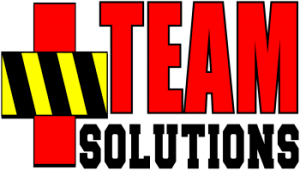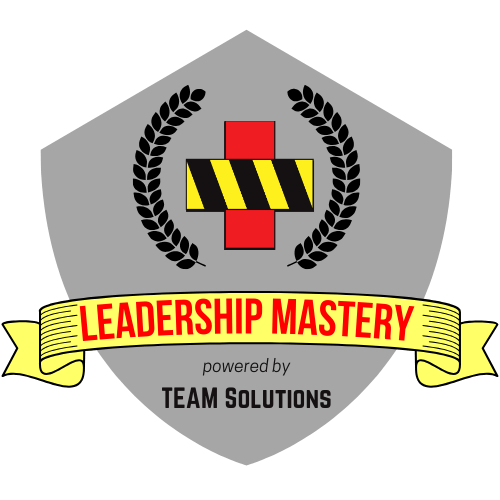Introduction: Why Leadership Mastery is the Key to Future Success
Leadership isn’t about titles or positions—it’s about influence, vision, and the ability to inspire people toward a common goal. In today’s ever-evolving world, the skills that define a successful leader have shifted. Gone are the days when technical expertise alone was enough. Now, leaders must excel in soft skills—emotional intelligence, communication, adaptability, and critical thinking—to thrive and drive progress.
This guide is designed to be your go-to resource for mastering leadership. Whether you’re leading a small team, managing complex projects, or preparing for senior executive roles, this guide will help you develop the skills and mindset needed for long-term success. Ultimately, it provides a foundation for joining the Leadership Mastery Membership, where we take these principles further with real-world applications, exclusive resources, and personalized coaching.
The Evolution of Leadership
Leadership today is more about influence than authority. As teams become more diverse and workplaces more dynamic, leaders must embrace new approaches to connect, motivate, and guide others effectively. This guide not only covers foundational leadership concepts but also focuses on future-proof skills that will remain relevant in an ever-changing world.
The Core of Leadership Mastery

The Leadership Continuum: From Leading Yourself to Leading Teams
Leadership begins with self-awareness and personal accountability. Before you can lead others, you must first lead yourself.
- Self-leadership: This involves setting clear personal goals, cultivating a growth mindset, and maintaining discipline. Leaders who manage themselves well set the tone for the teams they lead.
- Team leadership: Once self-leadership is mastered, the next step is leading others. This includes building trust, fostering collaboration, and creating a positive team culture.
- Organizational leadership: At this level, leaders focus on vision, strategy, and long-term growth. They influence not only their direct reports but also the organization’s direction.
Defining Soft Skills as the Foundation of Leadership
Soft skills are the bedrock of effective leadership. These skills enable leaders to connect with people, navigate challenges, and drive innovation. They include:
- Communication: Clear, empathetic, and persuasive communication is key to building trust and alignment.
- Emotional Intelligence (EI): Leaders with high EI can manage their emotions, empathize with others, and foster healthy relationships.
- Adaptability: The ability to pivot in response to change is essential in today’s fast-paced environment.
- Critical Thinking: Strong leaders analyze situations objectively, weigh options, and make sound decisions.

Hard Truths About Soft Skills
Despite their name, soft skills are anything but easy. They require ongoing practice and refinement. Many leaders struggle because they underestimate the importance of these skills or fail to develop them deliberately.
Pillars of Leadership Mastery
Emotional Intelligence (EI)
Emotional intelligence consists of five key components: self-awareness, self-regulation, motivation, empathy, and social skills. Leaders who excel in EI are better equipped to handle interpersonal challenges, foster trust, and create a positive work environment.
Effective Communication
Communication is more than just speaking clearly. It involves listening actively, understanding different perspectives, and conveying messages in a way that resonates with diverse audiences.

- Personal Communication: One-on-one interactions, coaching, and feedback.
- Team Communication: Facilitating meetings, resolving conflicts, and ensuring alignment.
- Organizational Communication: Crafting messages for broad audiences, such as company-wide updates or public statements.
Critical Thinking and Decision-Making
Critical thinking enables leaders to analyze complex situations, weigh different options, and make informed decisions. The 4AID Framework (Awareness, Analysis, Intuition, Decision) provides a structured approach to decision-making in high-pressure scenarios.

Adaptability and Resilience
Adaptable leaders thrive in uncertainty. They remain calm under pressure, pivot when necessary, and help their teams do the same. Resilience goes hand-in-hand with adaptability, enabling leaders to recover quickly from setbacks.
Mastering Leadership in Action

Applying Leadership to Different Contexts
Leadership isn’t one-size-fits-all. Great leaders adjust their style based on the context.
- Crisis Leadership: Requires calm, clear-headed decision-making under pressure.
- Everyday Leadership: Involves setting a positive example and influencing through daily actions.
- Virtual Leadership: Managing remote teams effectively by fostering trust and maintaining clear communication.
Tools and Frameworks for Effective Leadership
Your journey to leadership mastery is supported by proven tools and frameworks, including:
- R.O.C.K. Framework: A system for readiness and response in leadership.
- Response Leadership Sequence: Steps for managing crises effectively.
- Wheel of Engagement: Techniques for fostering team engagement and motivation.
Leadership Beyond Mastery: Preparing for the Future
Lifelong Learning

Leadership mastery isn’t a destination; it’s a continuous journey. The best leaders stay curious and committed to personal growth.
Networking and Collaboration
Building a strong professional network allows leaders to learn from others, gain new perspectives, and create opportunities.
Future-Proofing Your Leadership

The world is changing rapidly, and leaders must stay adaptable. By focusing on soft skills, emotional intelligence, and strategic thinking, you can remain relevant and effective in any environment.
Join the Leadership Mastery Membership
This guide provides a solid foundation, but the journey doesn’t stop here. Click the logo below to browse everything the Leadership Mastery Membership offers:
Your Leadership Journey Starts Now
Leadership mastery is a journey, not a destination. With the right mindset, tools, and support, you can become the leader you aspire to be. This guide is your roadmap. The next step is yours to take.
Ready to take your leadership to the next level? Join the Leadership Mastery Membership today and begin your journey toward becoming a future-proof leader.
Did you know?
- 'Management training' is an invented construct.
- Early management principles for groups were developed in the late 1800s and later popularized by Peter Drucker in the 1950s.
- Leadership, however, has been salient as long as people have convened in groups.
For instance, Chinese Strategist Sun Tzu wrote of his journey as a leader at least 2500 years ago.

